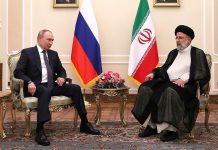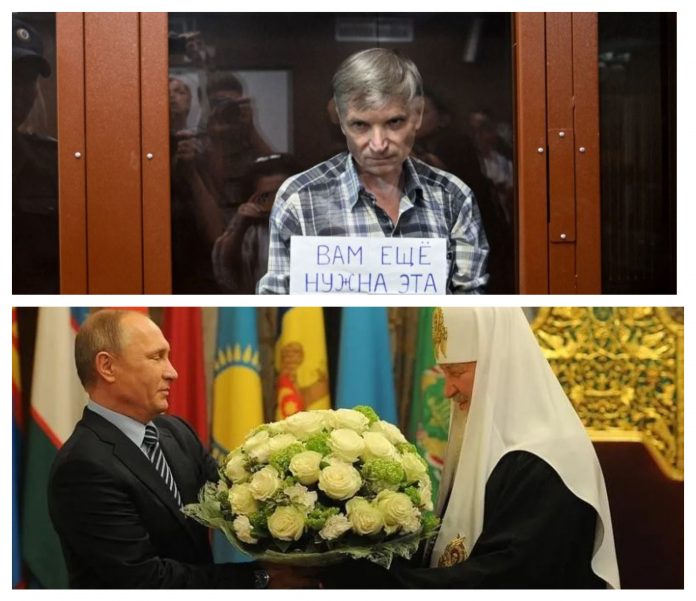Everyone talks about Ukraine, but the damage Putin has done to Russia is astonishing
Criticism of democracy is not new: thinkers from Plato to Socrates to Voltaire to Hobbes have expressed such sentiments, united by a common skepticism that average people possess enough of a clue to be trusted with any influence.
Recent election results in countries as diverse as the United States, Britain, and Israel certainly suggest that the skeptics have a point. But there is not much to do with this information. Those who note it are derided as “elites”—a term that has somehow become derogatory; young people seem to just be checking out.
The defense of democracies has come down to the hypotheses that they generally don’t initiate pointless wars[JF1] , and that mistakes are reversible because bums can be thrown out. Dictatorships, it is said, will bend toward idiocy in the end. These are not implausible theories, but also not self-evident. In our unsettling times, amid deep ideological struggle, proof points are required.
And that is one way—to be precise, the only way—in which Russian President Vladimir Putin has been useful. The sheer imbecility that Putin has imposed on Russia is a shocking spectacle as history rarely has beheld. That he cannot be removed in a democratic vote—for Russia has evolved from fake-democracy to dictatorship under his benighted rule—is really all we need to know.
Putin has been doing damage for 23 years since he succeeded Boris Yeltsin. It is easy to forget that Russia was considered a “developing” democracy back then—imperfect, corrupt and still riddled with KGB goons and nomenklatura apparatchiks—but not exactly fake. Putin won early plaudits for restoring some order, buoyed by a fortuitous commodities boom. He could have walked away as a decent post-Communist leader, even a welcome sober contrast to the shambolic Yeltsin.
But in Putin’s determination to cling to power he took on an increasingly diabolical cast—a phenomenon with an ignoble history in other sad corners of the world. Soon Russia became known as a place where the judges are cowed, the media is domesticated, pesky journalists are dispatched, opposition figures are disappeared, and insubordinate industrialists are jailed. All that was par for the course in authoritarian circles—Fidel Castro, Robert Mugabe, and Ferdinand Marcos all tried versions of it in Cuba, Zimbabwe, and the Philippines, respectively. Their attempts were lacking only in the colorful aesthetic of underwear poisonings and irradiated ex-spies.
Where Putin really earns his stripes as his generation’s leading argument for democracy is with the Ukraine war, now approaching its one-year mark.
The very idea was breathtakingly absurd: the leader of the world’s largest landmass by far—stretching across 11 time zones and almost twice the size of China and the United States—decided to gamble all and risk destroying the world in order to make this huge country just a little bit bigger.
This belief-beggaring decision was based on a notion that Kyiv is a natural part of Russia because of historical ties and linguistic affinity (which might also attach Brussels to France, Oslo to Sweden, Damascus to Iraq and Toronto to the United States). This argument was bolstered with a story about how Ukraine’s Jewish president is heading up a “Nazi” regime.
As is famous by now, nothing has gone according to plan. Kyiv has not fallen, and Russia gains are, while not inconsiderable, limited to the country’s east and south. Ukraine’s leader, President Volodymyr Zelensky, has famously stood his ground in his capital and become a darling of the free world—a veritable anti-Putin whose place in history is well assured.
Putin, meanwhile, will be remembered not only as a butcher but as the first leader to openly break the taboo on threatening the use of nuclear weapons—something that didn’t even happen during the 1962 Cuban Missile Crisis.
Most of the criticism and anger have centered around the damage the invasion has done to Ukraine. At least 100,000 soldiers and 7,000 civilians have been killed and many more wounded and maimed. Wide urban swaths have been laid waste amid incalculable infrastructure damage, and the cost to the economy has been estimated at $700 billion—more than three times the country’s GDP. There are real fears of an accident at Zaporizhzhia, the largest nuclear plant in Europe, now under Russia’s unreliable control.
Is there any excuse for Putin’s war?
The Ukrainian situation is heartbreaking and extreme, but not conceptually extraordinary. Countries and populations have suffered cruelly throughout history at the hands of maniacal invaders, from Napoleon to Genghis Khan.
But there is something even more amazing.
















